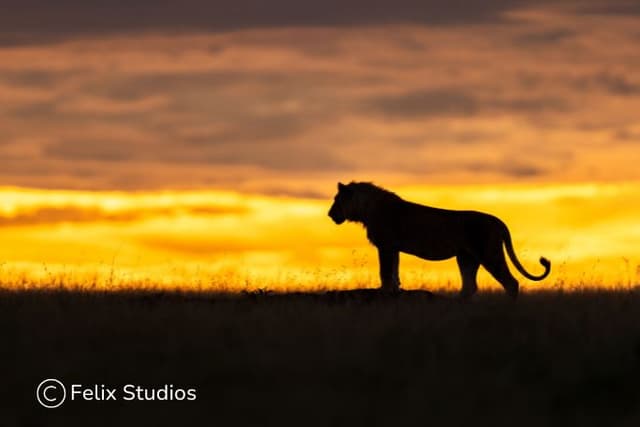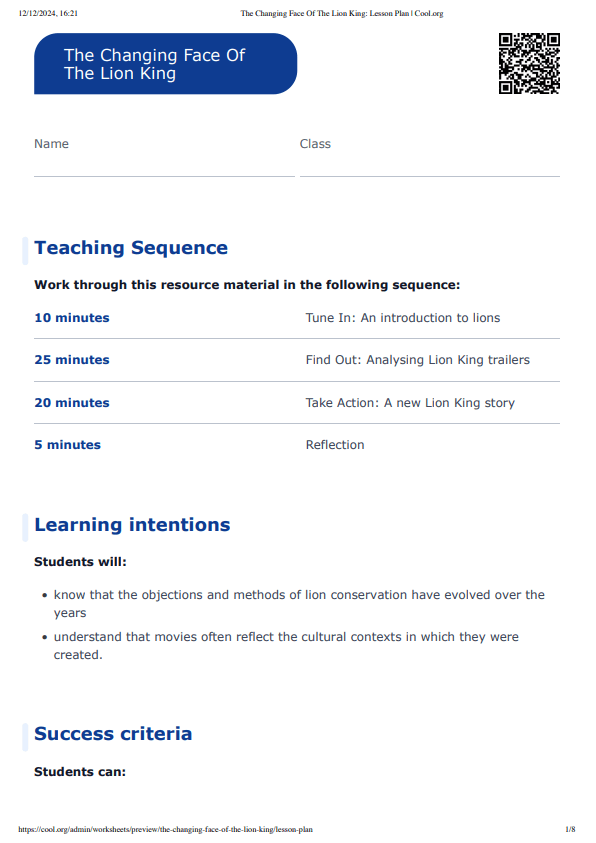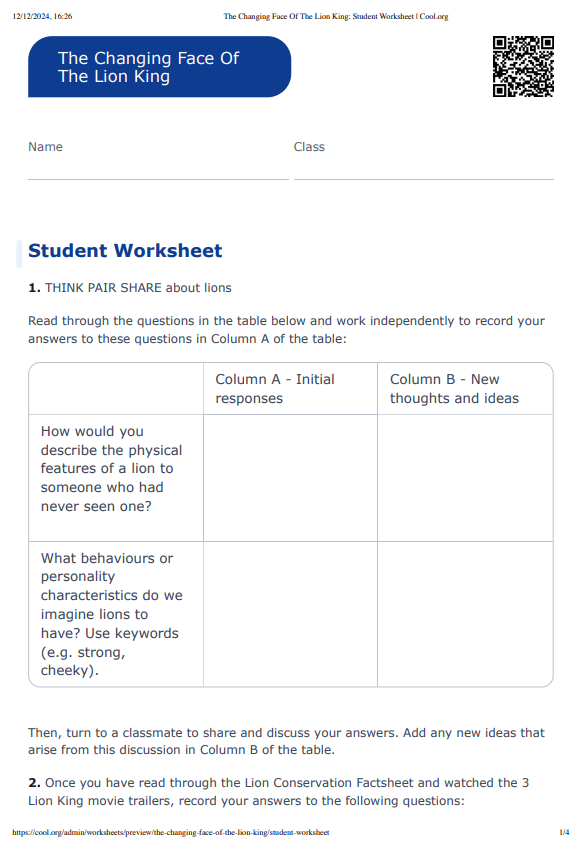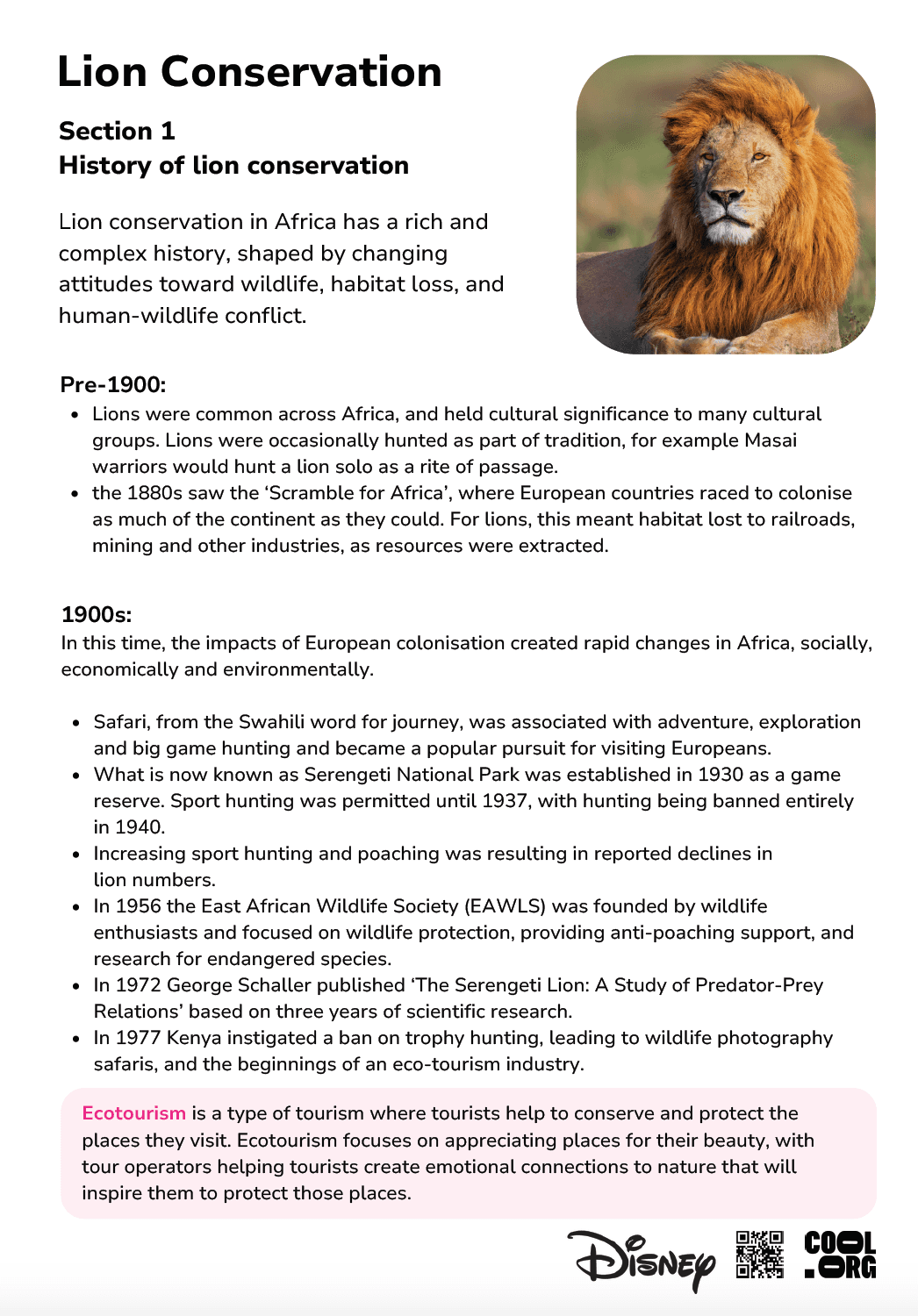Learning intentions:
Students will...
- know that the objections and methods of lion conservation have evolved over the years
- understand that movies often reflect the cultural contexts in which they were created.
Success criteria:
Students can...
- analyse movie trailers
- draw connections between movie trailers and historical lion conservation contexts
- create a short story to reflect present and future lion conservation objectives.



